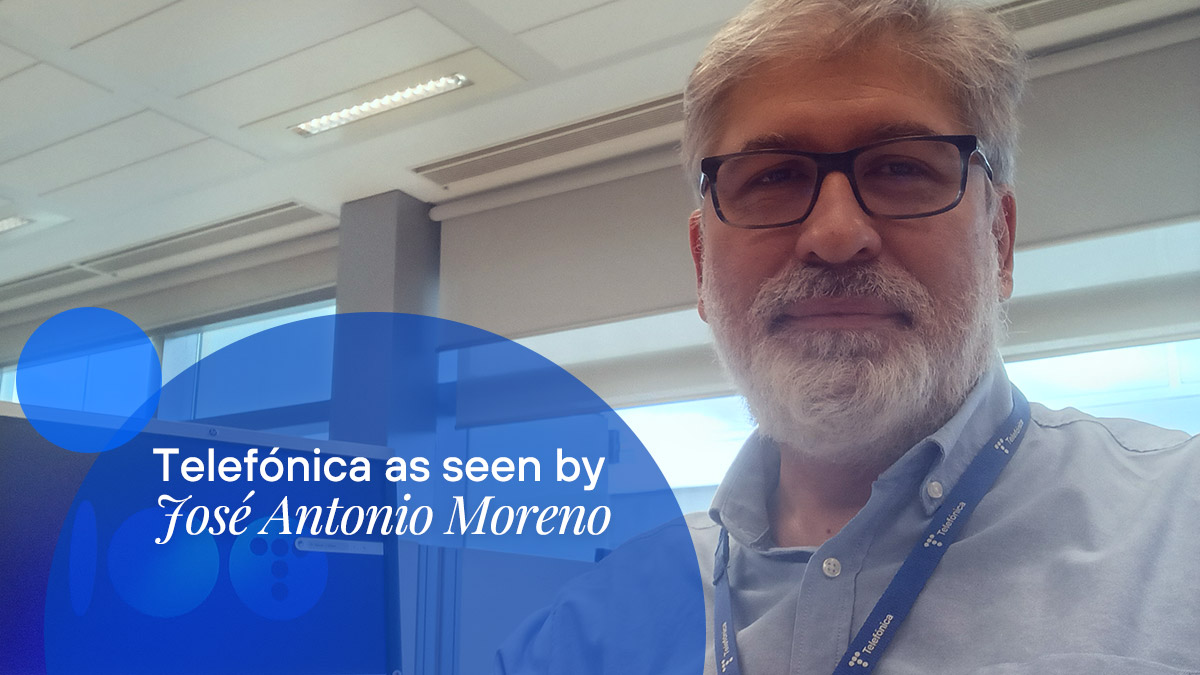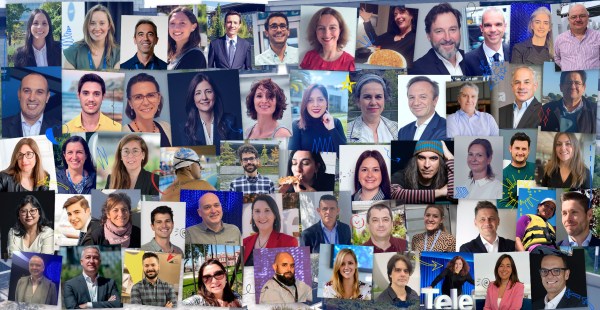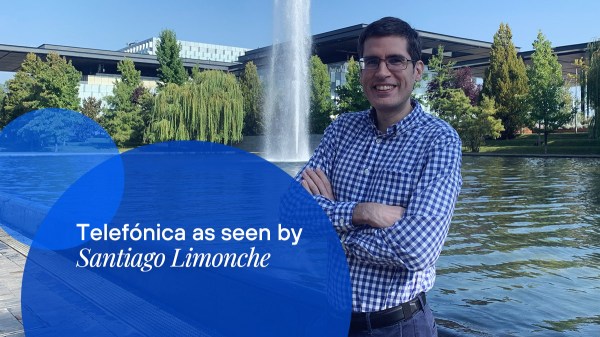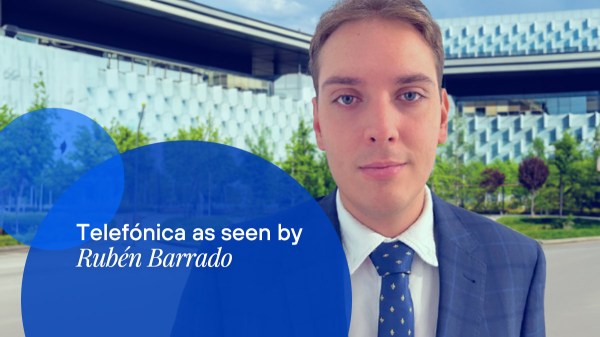How long have you been with Telefónica and what is your assessment of your time here?
I have been with the company for 31 years. The evolution it has undergone in all these years is worthy of a science fiction novel. When I joined the company, the closest thing to the Internet was InfoVía, a “proto-internet” that allowed you to browse a very limited number of web pages and only at a national level. To access the worldwide web, a more complete functionality was required, and you had to pay for it. And what about mobile communications: the first “shoe phones”, today’s smartphones, which are much more than just telephones, pay TV, fibre optics… Incomprehensible.
Is there any project at Telefónica that you feel particularly satisfied with or proud of?
There was a project that marked my future in the company. I was working in the now defunct Publications department, which in its last stage became a Corporation. At that time I worked in print publishing using Mac computers, the only ones that allowed it, and among other things we were in charge of the layout and printing of the results report. Telefónica was listed on Wall Street and in addition to the English part, it became compulsory to upload content to the Internet, a technology that was in its infancy in Spain.
I saw that the future of communication lay in this new medium and I learned to program in HTML on my own. Taking advantage of my limited knowledge, I edited the memory in one night and it was available at the opening of the stock exchange. It was a race against the clock, because I was asked for it only 12 hours in advance. It was good for me, because years later, thanks to the experience I gained in graphic design and editing as well as in web language, I ended up at Canal Online, where I am still working today.
What do you think Telefónica has contributed to society?
The most important thing that Telefónica has contributed (and this will be a recurring answer) is bringing people closer together. Thanks to the technologies developed and promoted by Telefónica, distances have been reduced to zero. Furthermore, it has contributed to a brutal growth in digital technologies, favouring a new type of economy and projecting Spain to the world.
Where do you see Telefónica in the future?
Telefónica will continue to be a key player in the digital economy, not only in Spain, but also in Europe and, by extension, in the other markets where we operate. The future will bring new forms of communication (telepresence, 3D, immersive TV…) and this will require networks with brutal bandwidths. Only top-tier companies like Telefónica can guarantee this future.
Could you live without a mobile phone?
I have lived without it for half my life and I have survived. But it is true that nowadays instant communication through a device that you carry with you most of the day is a paradigm that has transformed us as a society and there is no going back. In any case, I try to disconnect whenever I can, there are “analogue” ways to pass the time that are much more edifying and in those moments, I silence my mobile phone.
Help us solve one of the great enigmas of humanity: the potato omelette… With onion or without onion?
I like my omelette lightly cooked, juicy and with onion, caramelised if possible. And if it’s accompanied by fried green peppers, nothing better (except a good Russian salad).
Nominate another colleague to appear in this section
I nominate Santiago Pérez Allas and Ramiro Llano Cuadra.








